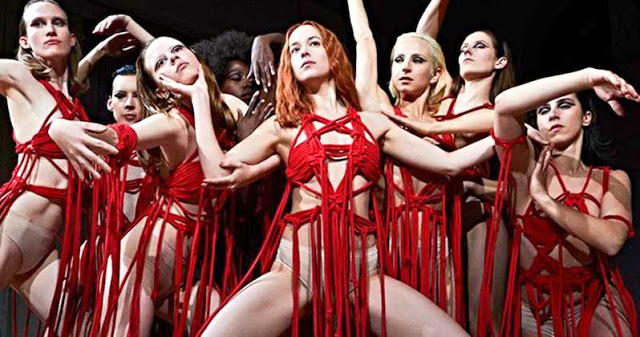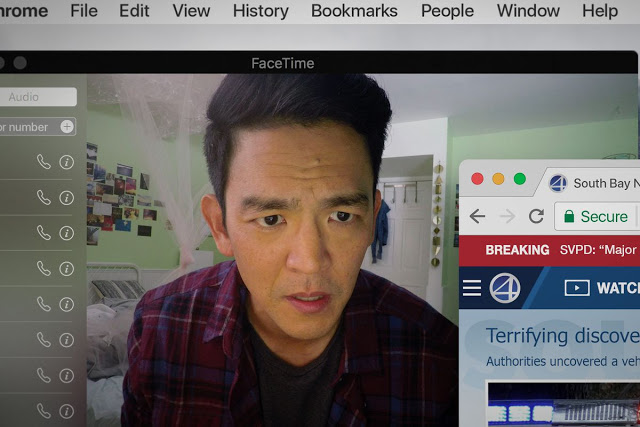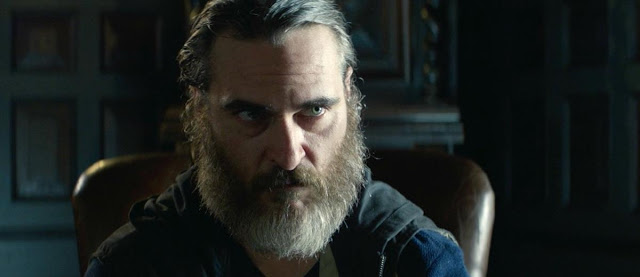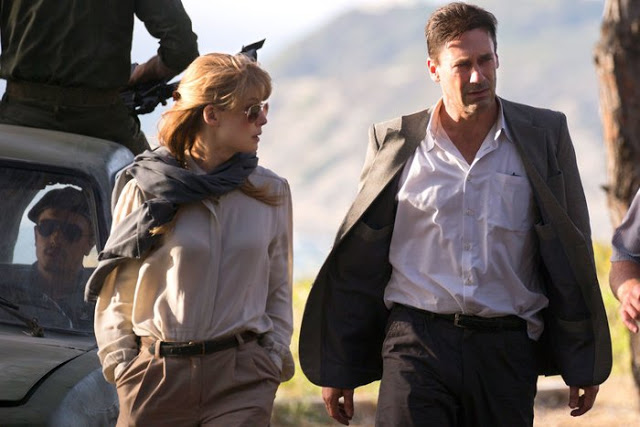Suspiria: Witchy Women, Dying and Born Again
Dance is death in Suspiria, Luca Guadagnino’s insane, exasperating, furiously watchable remake of Dario Argento’s 1977 cult classic. The collision of beauty and brutality on stage is hardly novel; Black Swan gave us a feral portrait of a performer who helplessly sacrificed her body and her sanity in the pursuit of artistic perfection. But Suspiria posits ballet as a more malevolent sort of blood sport, where lithe women twirl and leap and crash, all while sinister forces lurk behind the gleaming mirrors and beneath the polished floorboards, eager to feed on the talents of the young. I’m not speaking metaphorically; this really is a movie about a desiccated matriarch who craves to transplant her soul from her own befouled body into the supple flesh of an unsuspecting protégé. And you thought the battles in the Step Up franchise were intense!
Of course, Suspiria is more (or maybe less) than a gonzo supernatural thriller. “I could explain everything to you; I think that would be wrong, though,” an instructor murmurs to an unnerved pupil. I can’t explain much of anything to you, because this movie defies easy description, even as it eagerly courts post-hoc analysis. Suffice it to say that Suspiria seems to be about many things. Perhaps it’s about the intersection of political activism and grass-roots fanaticism, given that it’s set in Germany 1977 and glancingly depicts (by way of news broadcasts and radio snippets) the death knell of the Baader-Meinhof movement. Maybe it’s about femininity and solidarity, seeing as it traces the relationships—the camaraderie, the rivalries, the jealousy and admiration—of a company of female dancers at an elite academy. Maybe it’s about self-discovery; its main character, Susie Bannion (Dakota Johnson), initially enters the conservatory’s halls with timidity, only to quickly reveal herself as an ambitious and capable dancer with a hunger for stardom. Maybe it’s about the persistence of fascism; how else to explain the extensive subplot about an elderly German man searching for his wife, who’s believed to have vanished decades ago at the Concentration Camps? Or maybe it’s just about a bunch of old women who want to be young again. Read More





